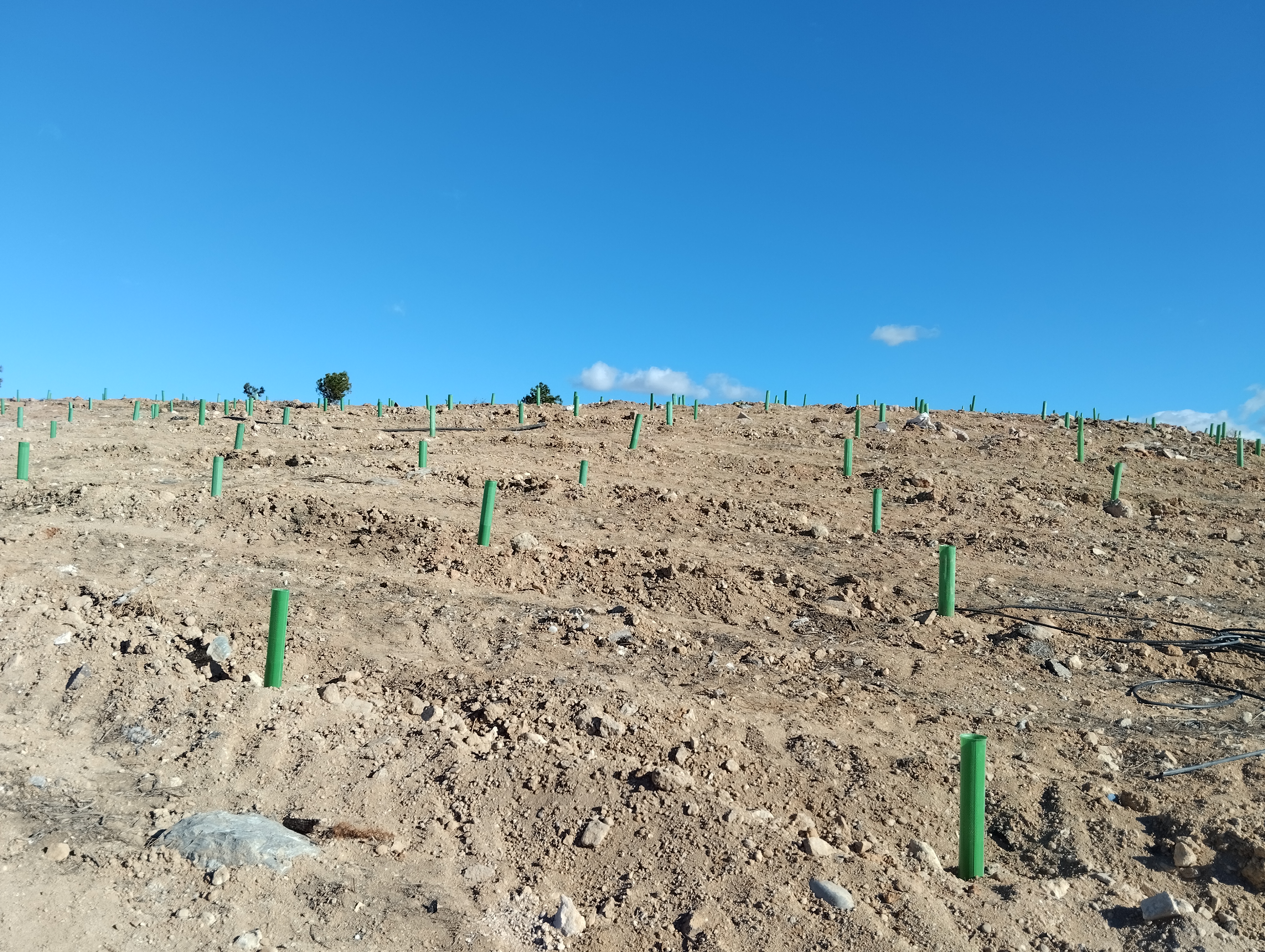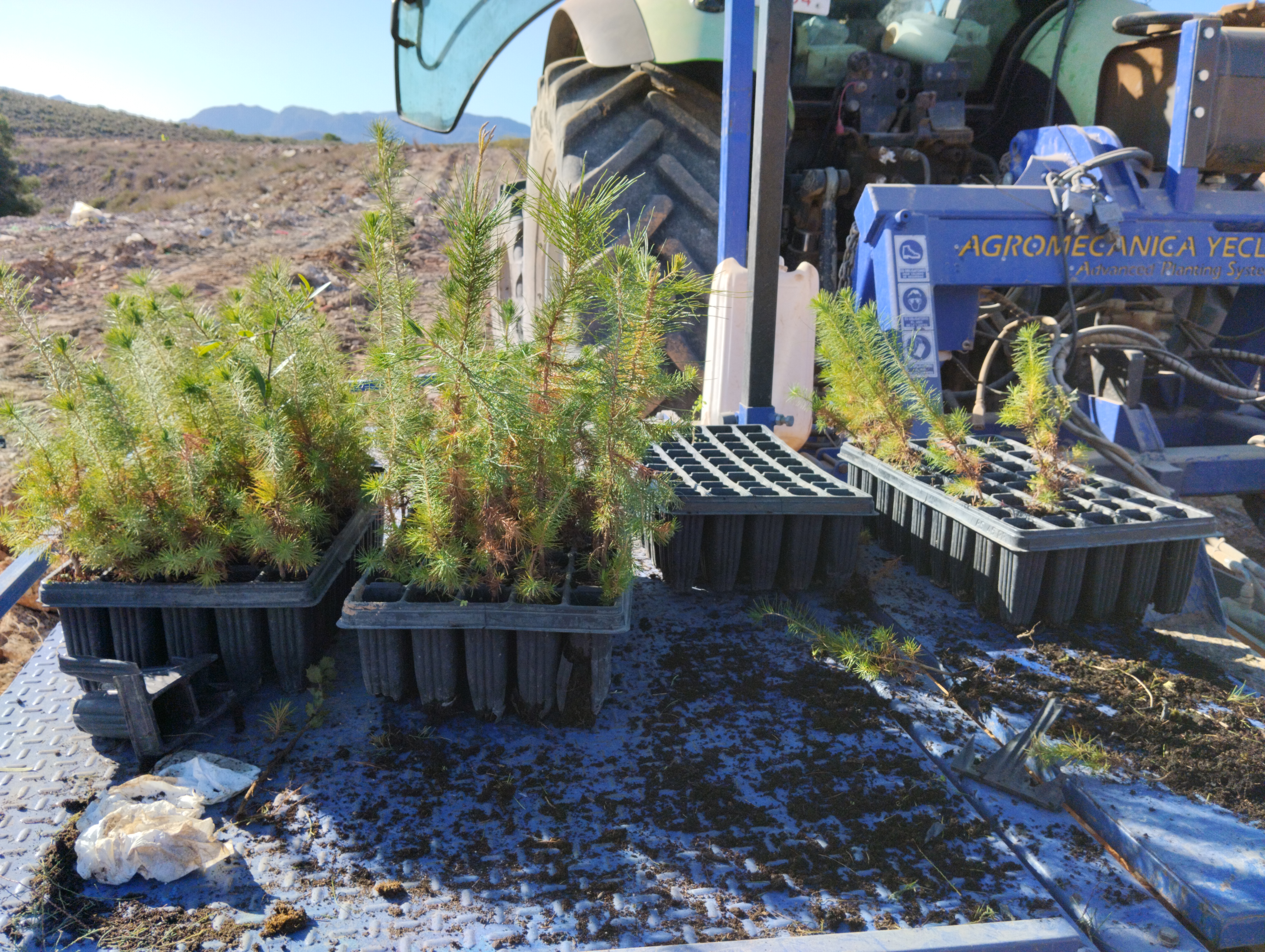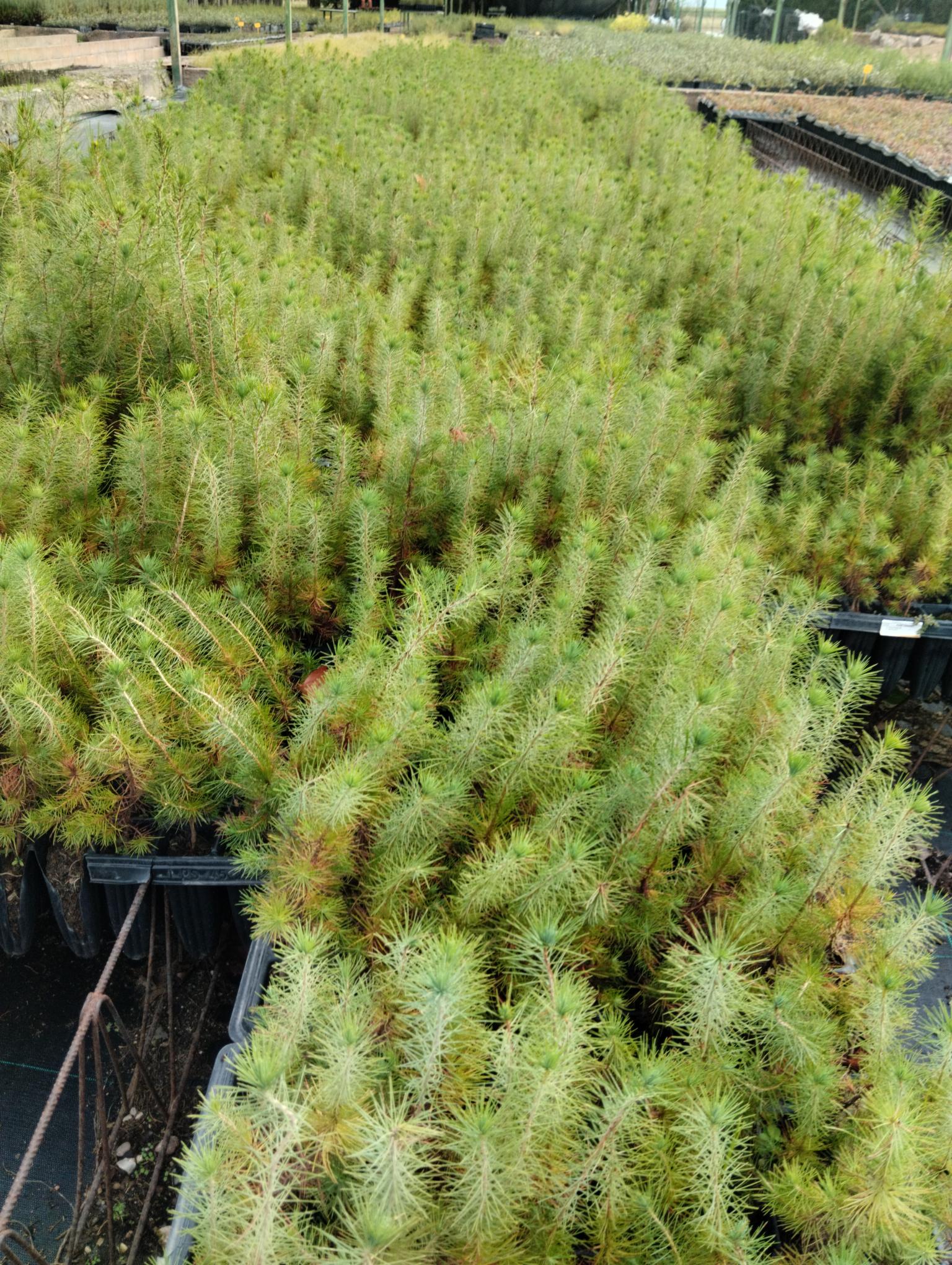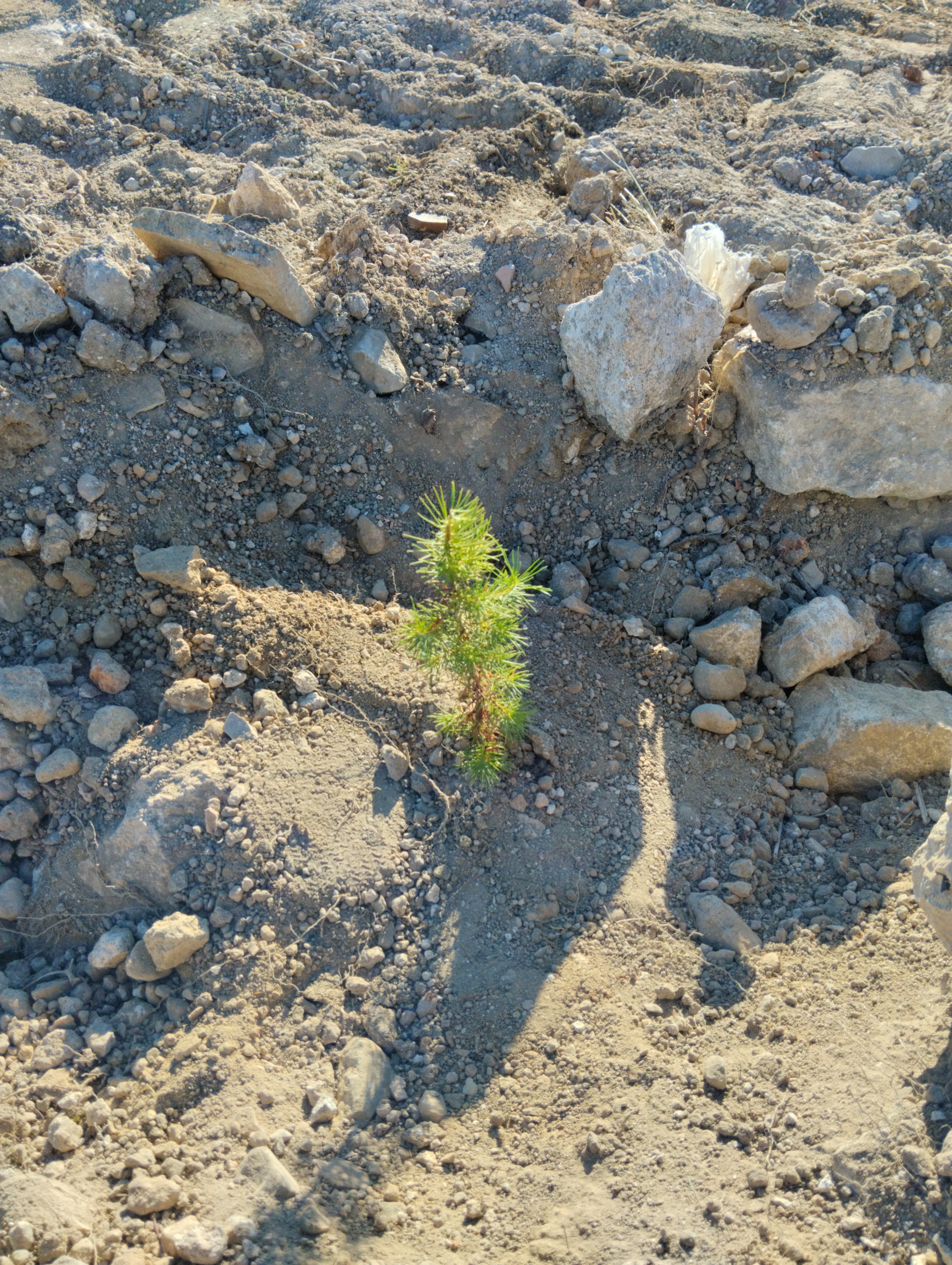News
FCC Medio Ambiente carries out the ‘React!’ project in Hellín to offset its carbon emissions

FCC Medio Ambiente has financed and carried to term the project 'REACT! HELLÍN CARBON SINK' (¡REACCIONA! SUMIDERO DE CARBONO DE HELLÍN), defined and promoted by the Hellín City Council, which consists of planting a forest on municipal land formerly occupied by the ‘Rincón de las Españas’ inert waste landfill, with the ultimate aim of offsetting CO2 emissions.
The forest covers an area of 4.14 hectares, mainly planted with Aleppo pine (Pinus Halepensis), and is expected to capture 283 tonnes of CO2 over its 30-year life span.
The objectives of this project are:
- Creating a forest land for the capture of CO2 and its subsequent storage in the form of vegetable matter, thus contributing to mitigating climate change.
- Restoring the landscape using species native to the area to be reforested.
- Ensuring the protection, conservation and integrity of the biological diversity and the characteristic ecosystems of the area.
- Raising environmental awareness of the general population and specifically of all schoolchildren in the municipality, as the Environmental Service of Hellín City Council includes in its Municipal Environmental Education Programme an activity that involves the creation of a mini-forest of great diversity and high density that is located in the area of the React! sink.
- Improving the quality of life of the population by improving air quality
Support for the React! Hellín Carbon Sink is a further step that FCC Medio Ambiente takes towards offsetting its carbon footprint, in the conviction that supporting and carrying out reforestation projects is a good way of creating value for society, not only by absorbing CO2, but also because of the positive impact on biodiversity and the recovery of degraded spaces, turning them into usable areas for local communities.
This project is also part of the environmental axis of its 2050 Sustainability Strategy, in which it is committed to reducing greenhouse gas emissions by 35% by 2030 compared to 2017 and to achieving carbon neutrality by 2050.













